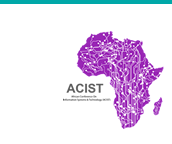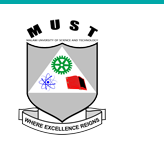Location
Virtual - Microsoft Teams Meeting
Start Date
2-7-2020 4:00 PM
End Date
2-7-2020 4:15 PM
Timezone
Ethiopian Time
Start Date (EST)
July 2020
End Date (EST)
July 2020
Description
Several models recently have been addressed in software engineering for requirements transformation. However, such transformation models have encountered many problems due to the nature of requirements. In the classical transformation modeling, some requirements are discovered to be missing or erroneous at later stages, in addition to major assumptions that may affect the quality of the software. This has created a crucial need for new approaches to requirements transformation. In this paper, a comprehensive study is presented in the main modern models of linking requirements to software architectures. An extensive evaluation is conducted to investigate the capabilities of such modern models to overcome those limitations when transforming requirements, validating their consideration of bringing quality for the software development process. Key research gaps and open issues are discussed, highlighting the possible future directions that can be considered in this field.
Included in
A Comprehensive Study for Modern Models: Linking Requirements with Software Architectures
Virtual - Microsoft Teams Meeting
Several models recently have been addressed in software engineering for requirements transformation. However, such transformation models have encountered many problems due to the nature of requirements. In the classical transformation modeling, some requirements are discovered to be missing or erroneous at later stages, in addition to major assumptions that may affect the quality of the software. This has created a crucial need for new approaches to requirements transformation. In this paper, a comprehensive study is presented in the main modern models of linking requirements to software architectures. An extensive evaluation is conducted to investigate the capabilities of such modern models to overcome those limitations when transforming requirements, validating their consideration of bringing quality for the software development process. Key research gaps and open issues are discussed, highlighting the possible future directions that can be considered in this field.



